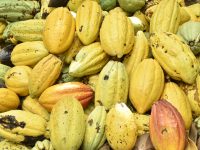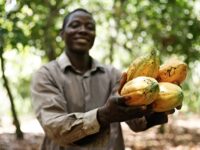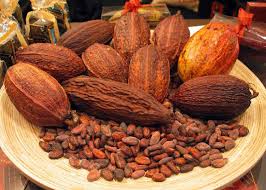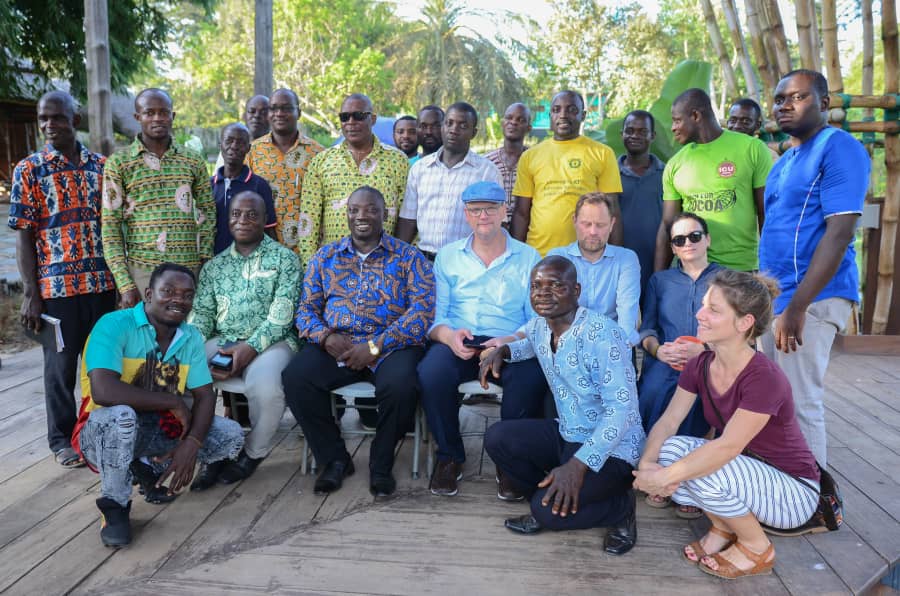
Ghents University team in shot with farmers
Ghana Agriculture News-Ghana’s cocoa production is suffering a huge yield gap that has to be closed if Ghana intends to remain relevant to the world as far as cocoa production is concerned.
This message was delivered by representatives of Ghent University in Belgium who conducted an in-depth research into Ghana’s cocoa production.
After five years of meticulous research funded by the Belgian government, the team returned to deliver the results of their research and illicit action that will cause a significant growth in productivity.
At a colourful meeting held at the Kakum National Park in the Central Region, the researchers led by the newly appointed Vice Chancellor for Ghana Technology University; Prof. Emmanuel Ohene Afoakwa, explained that although Ghana produces premium cocoa, Ghanaian farmers are suffering significantly low yields; a situation they believe is impoverishing farmers. They say cocoa farmers in Ghana currently record an average yield of 230Kg/Hectare instead of an expected 3,300 Kg/hectare.
They attributed this low yields to inadequate soil nutrients, Climate Change, Pest and disease incidents amongst others.
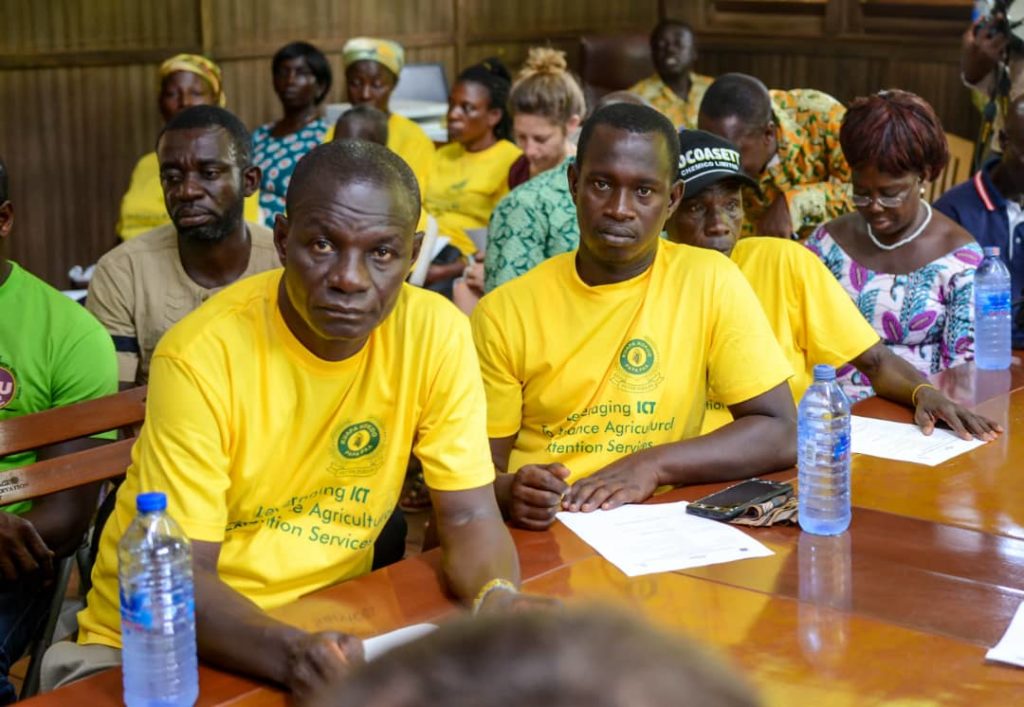
Kuapa Kokoo farmers at the forum held at Kakum National park
Prof. Pascal Boeckx who presented on the theme “Towards integrated intensification of Ghanaian cocoa supply chain” hinted that 60% of Ghanaian Cocoa farmers experienced low yields while only 10% experienced high yields i.e. 1000Kg/hectare.
He believes that basic farming practices including the provision of shades on the farm, proper fertilizer application and curbing deforestation can help produce better results.
He was however very worried about the toll climate change was taking on the cocoa business and suggested that the government takes climate change very seriously especially as it relates to cocoa production. He explained that there clearly are some regions in Ghana which have become less and less optimal for cocoa production. “So if the government wants to do something for cocoa farmers, they should aim for intensification of cocoa production in the regions that are still suitable for cocoa production and I would even suggest to abandon cocoa production in the less suitable regions or switch to an alternative cultivation” he offered.
Prof. Koen Dewettinck believes a thorough understanding of the cocoa value chain will help Ghanaian cocoa farmers profit more from their work since in his view, what cocoa farmers reap from their work is abysmal.
PHD Candidate John Edem Kongor who presented the results said the acidity of the soils in the six cocoa growing regions in the country did not help matters since it does not make nutrients available to the plants. He also revealed that most farmers did not follow prescribed ways of fertilizer application as many applied fertilizer after the rains and in wrong quantities.
He also predicted that a lot of farmers will be losing their farms to climate change and stated that their projections based on mathematical models are not looking good for Ghana.
The farmers who participated enthusiastically in the presentations promised to ensure good cultural practices on their farms in order to boost yields.
Though the plugs have been pulled on funding for the such projects in Ghana by the Belgian government, the team say they are looking elsewhere for more funds to continue their research into other areas of cocoa production in Ghana.
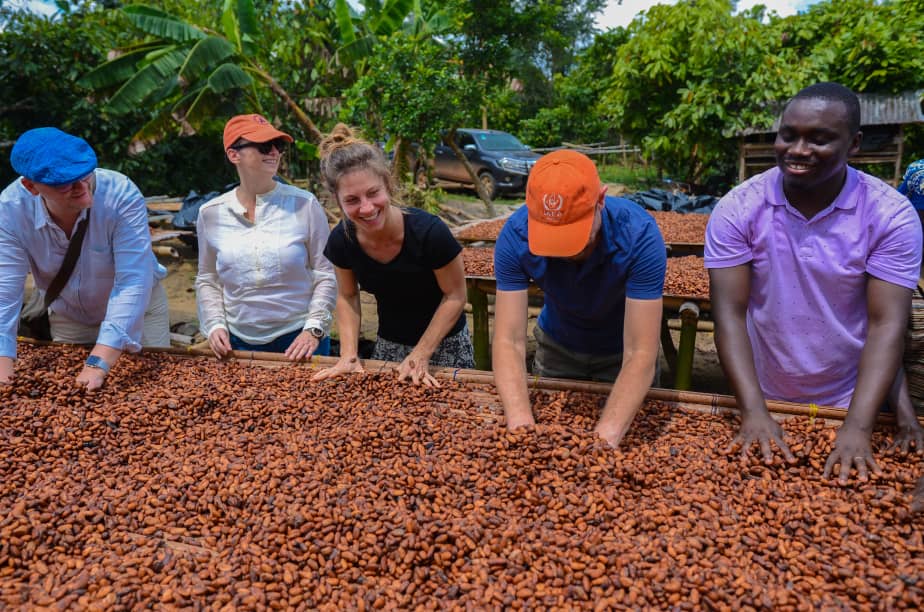
Ghents university research team visits kuapa kokoo farmer
What do you think about this piece? Share your comment in the comment thread and share the story using the social media buttons above. Thank you.
